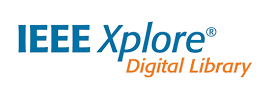Semantic-based Process Mining and Model Analysis
Project Tittle: Semantic Process Mining Towards Discovery and Enhancement of Process Models and Event Logs Analysis: Application on Learning Process Domain.
Goal: The use of semantic-based approaches to manage perspectives of process mining. Emphasis on improving the information values and analysis of process models and event data logs.
Overview: The Project has been completed as part of my Doctoral Research Program. The thesis introduces a Semantic-Fuzzy mining approach that makes use of labels within event logs to propose a method which allows for mining and improved analysis of the resulting process models through semantic – annotation, representation and reasoning.
Indeed, the ability to mine useful or worthwhile knowledge from readily extracted data in current information systems is a challenge, due to the exponential increase in volume of data that is generated. In consequence, this has spanned the need for a richer and advanced description of real-time processes that allows for flexible exploration of the large volumes of data targeted at improving the system performance and analysis. Such process-related analysis, often allied to process mining, means there is also need for techniques that are capable of extracting valuable information from the event logs about the real time processes. For that reason, the focus of the work in the thesis is on extracting streams of event logs from the real time process environments and propose formats that allows for mining and improved analysis of the captured datasets and the resulting process models correspondingly. Qualitatively, the thesis shows by using a case study of Learning Process - how the data from the various process domains can be extracted, semantically prepared, and transformed into mining executable formats to support the discovery, monitoring and enhancement of real-time processes through further semantic analysis of the discovered models. In addition, the study quantitatively assess the level of accuracy of the classification results to predict behaviours of unobserved patterns or traces within the process knowledge-base. Accordingly, the study looks at the level of impact and usefulness of the proposed semantic-based approach, validity of the classification results, and their influence compared to other existing benchmark algorithms and techniques for process mining. The research outcomes shows that a system which is formally encoded with semantic labelling (annotation), semantic representation (ontology) and semantic reasoning (reasoner) has the capability to enhance process mining analysis and outcomes from the syntactic level to a much more conceptual level. The proposed method results in a process mining approach that is able to induce new knowledge based on previously unobserved behaviours, and a more intuitive and easy way to envisage the relationships between the process instances and the discovered models. To this end, the research claims that it is possible to apply effective reasoning methods to make inferences over a process knowledge-base (e.g. the learning process) that leads to automated discovery of learning patterns and/or behaviour.
More details about the project can be found here







